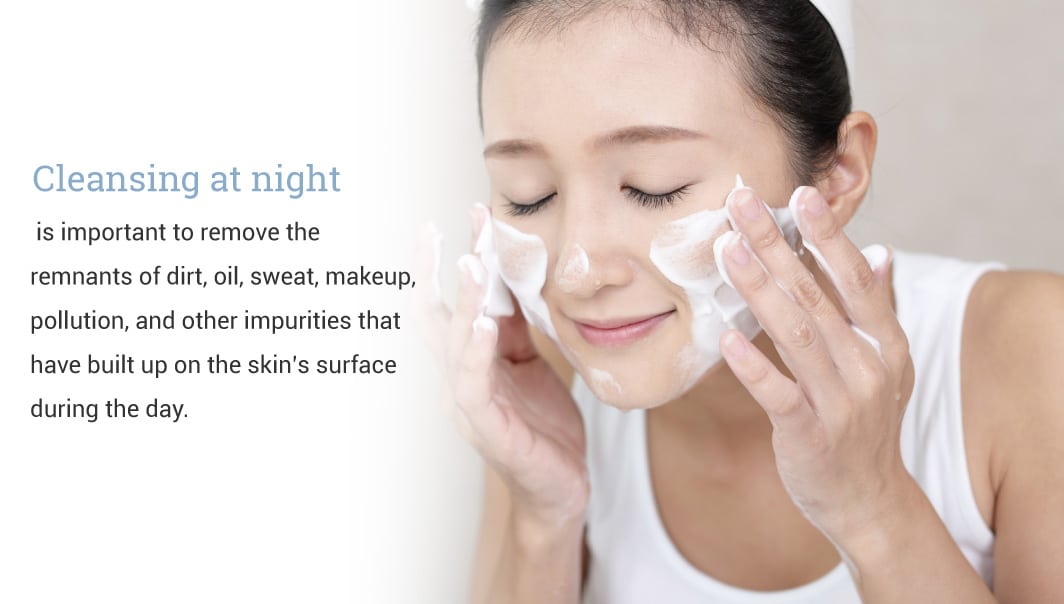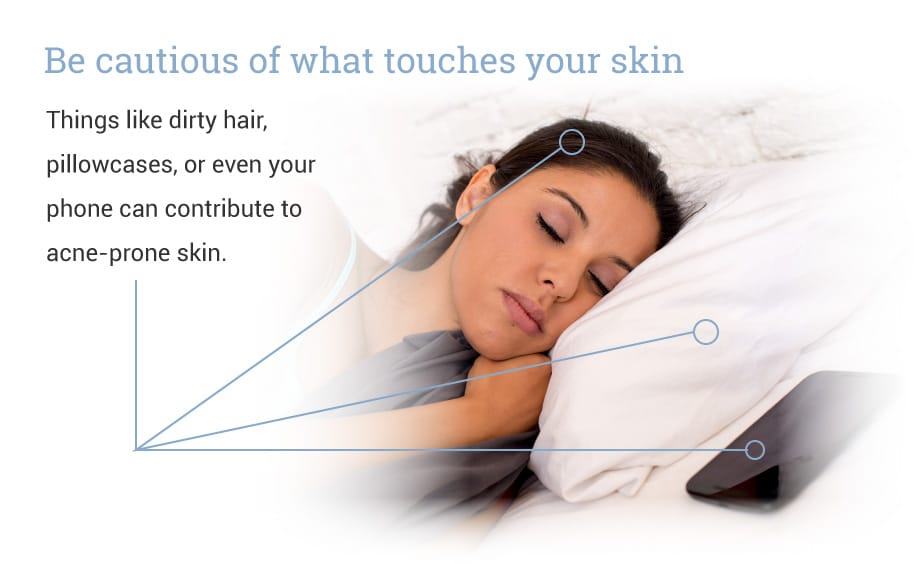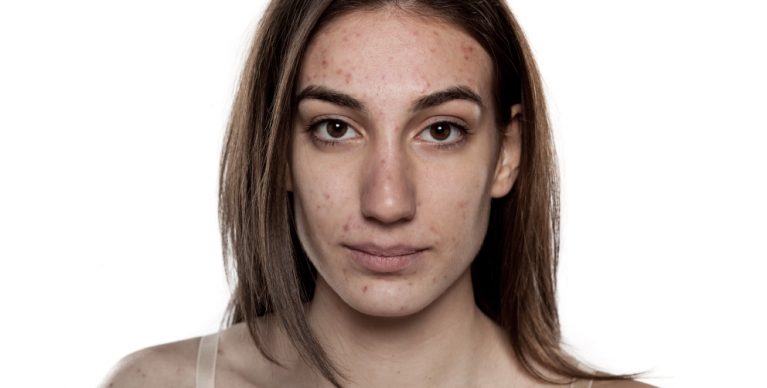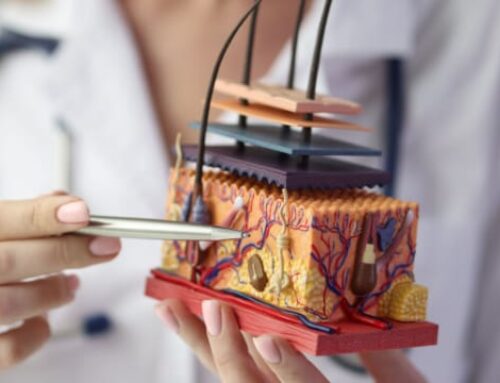If you’ve ever had to deal with acne, you understand that it can be a difficult battle. Blemishes can be embarrassing and frequent breakouts can lower a person’s self-esteem. Before we fill you in on the six tips to better manage your acne symptoms, it’s imperative to understand what causes acne.
The first step in the formation of a blemish occurs when the skin’s sebaceous glands produce excess amounts of sebum. Sebum is a naturally occurring oily substance that moisturizes, lubricates, and protects the skin and hair. Even though sebum production is normal, when it is produced in excess it can clog the skin’s pores. There are numerous factors that can increase the skin’s sebum production, including cosmetics, smoking, stress, foods and drinks with high sugar content, and many more.
The next step in the development of acne is follicular hyperkeratinization. While the name may sound complicated, this simply means that follicles in the skin are not exfoliating properly. This means that keratin in the skin cells and sebum clog the follicle. When the follicle becomes clogged, a species of bacteria called Propionibacterium acnes accumulate and multiply in the follicle. The follicle becomes inflamed, thus leading to pimple formation.
Considering how acne develops, effective treatment options should accomplish the following:
- Normalize the skin’s sebum levels
- Destroy the P. acnes bacteria
- Calm the skin and reduce inflammation
It’s important to keep in mind that there is no cure for acne. However, many effective treatment options exist that can help to reduce acne breakouts. The best option is to consult with your dermatologist to find a treatment that will help your acne. In addition to seeing your dermatologist, try out these six tips to better manage your acne symptoms.
1. Cleanse twice daily
Did you know that rinsing your face with just water only removes about 65% of oil and dirt? Cleansers are designed to grab onto the oil, dirt, dead skin cells, and other impurities that can build up on the skin’s surface and clog pores. It’s important to cleanse both day and night to have healthy skin and to better manage acne symptoms.
Overnight is the time in which the body heals itself, especially the skin. Dr. Amy Wechsler, MD, explains that, “While you sleep, cortisol is at its lowest and anti-inflammatory molecules like beta-endorphins and growth hormones are at their highest, so that’s when skin heals.”

While this process is important, it also leaves you with a face full of dead skin cells and excess sebum in the morning. Thus, cleansing in the morning is important to slough off dead skin cells and emulsify the excess sebum.
Cleansing at night is important to remove the remnants of dirt, oil, sweat, makeup, pollution, and other impurities that have built up on the skin’s surface during the day. In fact, according to Dennis Gross, MD, board-certified dermatologist and founder of Dr. Dennis Gross Skincare, sleeping in makeup is “one of the biggest mistakes” a woman can make regarding skincare. When makeup is left on overnight it can seep deep down into pores, blocking them and leaving oil trapped inside. He adds, “This leads to bacteria build up, breakouts, and enlarged pores — which are many of the reasons women wear makeup in the first place.”
2. Do not scrub harshly
When you’re suffering from acne, it may seem like a good idea to scrub your face to really get all of the dirt and oil off. However, the Mayo Clinic suggests to avoid excessive washing and scrubbing as this can irritate skin, leading to further inflammation and increased sebum production. You don’t need to scrape your skin or use harsh surfactants to cleanse your face.
3. Don’t skip the moisturizer
A common skin care myth is that people with acne-prone skin should not use moisturizers because they will further clog the pores and contribute to more breakouts. Quite the opposite is true! Moisturizing prevents your skin from feeling like it’s too dry, which would ultimately lead to even more oil production. As mentioned above, too much oil is part of the process of acne formation. Thus, using a moisturizer that is light, oil-free, and noncomedogenic will help to better manage your acne symptoms.
4. Be cautious of what touches your skin
Many people forget that little things, such as letting your hair rub against your face throughout the day, can trigger breakouts. Try to keep your hair clean and off your face. Also, avoid resting your hands or objects, such as your cell phone, on your face.

5. Do not pick at blemishes
As mentioned above, pimples are formed from excess oil, dead skin cells, and bacteria. Dermatologist Zakiya Rice, MD, an assistant professor at Emory University School of Medicine in Atlanta, explains, “What we call the pustule is actually keeping the bacteria nice and contained.”
When you puncture a blemish, all of that oozes out and can accumulate inside other pores, leading to more pimples. Plus, picking at a zit can force the debris and bacteria even deeper into the skin, causing it to become more red, inflamed, swollen and infected. Picking at blemishes may even lead to permanent scarring.
6. Always protect against the sun
Daily sun protection with a broad spectrum sunscreen of at least SPF 30 is a necessity for all skin types. This is especially true for acne-prone skin since the sun’s ultraviolet rays can increase inflammation and worsen breakouts. UV rays can also cause post-inflammatory hyperpigmentation (dark discoloration). (WebMD)
Many patients convey they are worried that sunscreen will cause them to break out. While this may be true for certain sunscreens, you can still have superior protection against the sun by knowing which ingredients to look for. First, look for a sunscreen that is in a lotion form. It should be light, oil-free, noncomedogenic, and provide broad spectrum protection.
Following these 6 tips to better manage your acne symptoms along with getting expert recommendations from a dermatologist will help to keep your skin healthy and clear. New York board certified dermatologist Dr. Jessica Krant can help you to not only better manage your acne symptoms, but also improve the appearance of any acne scarring that may have already developed.














Leave A Comment